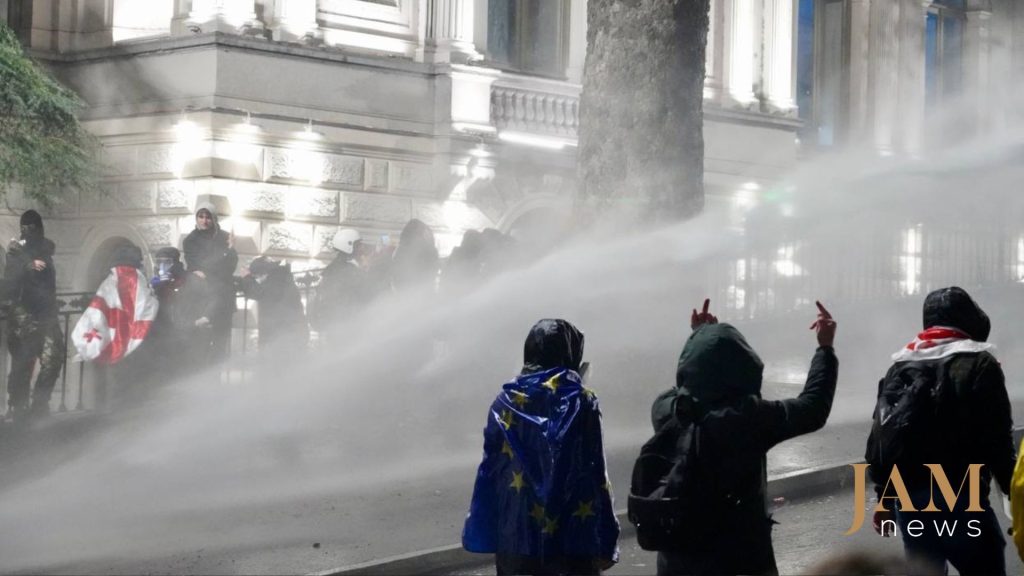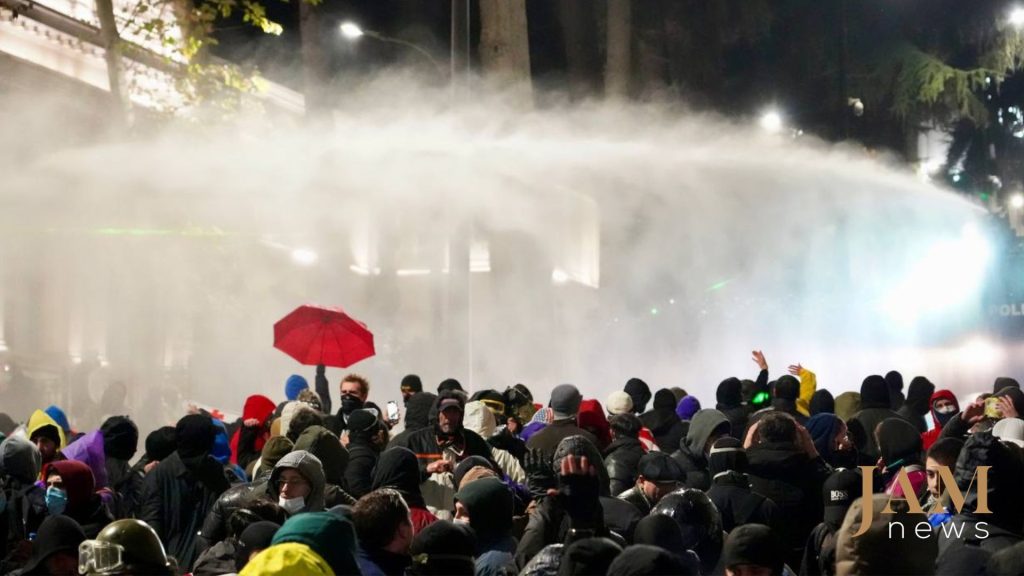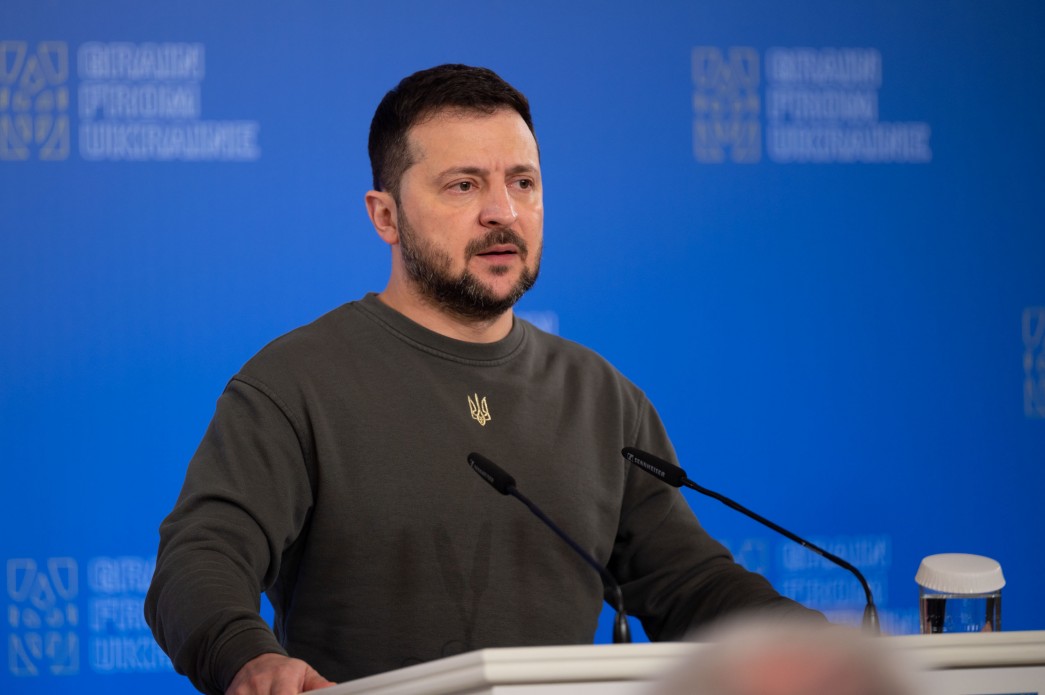Georgian police admit possible chemical use in water cannons as protesters report tear gas symptoms
"Beyond getting wet in the cold, people report severe eye burning and breathing difficulties," journalist Aka Zarkua says.


Georgian police may be using chemical irritants in water cannons against pro-EU protesters, reflecting what journalists call an unprecedented shift in tactics during ongoing demonstrations in Tbilisi.
The protests erupted on the night of 28-29 November 2024 following the government’s suspension of Georgia’s EU talks until 2028. They come one month after a disputed election in which the ruling pro-Russian Georgian Dream party claimed victory amid reports of widespread violations. The suspension of EU talks is the latest episode of Georgia’s pivot toward Russia, reversing two decades of the small Caucasian country’s Euro-Atlantic integration efforts.
Journalist Aka Zarkua described the aftermath of water cannon usage, highlighting widespread symptoms consistent with chemical exposure. “People who were watered on yesterday’s demonstrations reported severe burning in the eye, difficulties with breathing, and all the other things which were not mentioned in previous times,” he told Euromaidan Press.
These observations suggest that the water contained substances capable of causing chemical irritation, a tactic not previously employed during Georgian protests in recent years.

The use of water cannons, traditionally considered a less-lethal method of crowd control, becomes significantly more controversial when chemical agents are added. Such practices are often criticized for their indiscriminate effects, as they expose not only protesters but also bystanders and journalists to health risks. In Tbilisi, this alleged chemical deployment marks a stark departure from previous tactics, signaling a shift toward more aggressive measures by law enforcement.
“This riot police began to provoke demonstrators… and towards the morning hours, they went just crazy. They started to follow demonstrators in faraway places from the parliament,” journalist Aka Zarkua told Euromaidan Press, describing the first night of protests.

The legality and ethical implications of such measures are under scrutiny. Deputy Interior Minister Aleksandre Darakhvelidze, when questioned about the use of chemical additives, neither confirmed nor denied their presence but stated that the addition of substances like gas, paint, or irritants is legally permissible under certain circumstances.
On the second night of the protests, 29-30 November, at least 107 people were detained in Tbilisi alone as police deployed multiple crowd control measures simultaneously. According to Zarkua, this level of force against journalists is unprecedented: “We’ve not seen this maybe for two or three years… before police were saying they didn’t protect journalists, but they were not beating them.”
Related:
- Georgian authorities deploy unprecedented force as pro-EU protests spread nationwide
- “Don’t let them steal your future”, former Ukrainian FM addresses protests in Georgia
- Georgian businesses, diplomats, universities launch strikes after crackdown on pro-EU protesters
- Pro-Russian party cements victory. Can Georgia’s revolution succeed?
- “Story of a dying empire”: Georgia’s “foreign agent” law protests echo Ukraine’s Euromaidan


